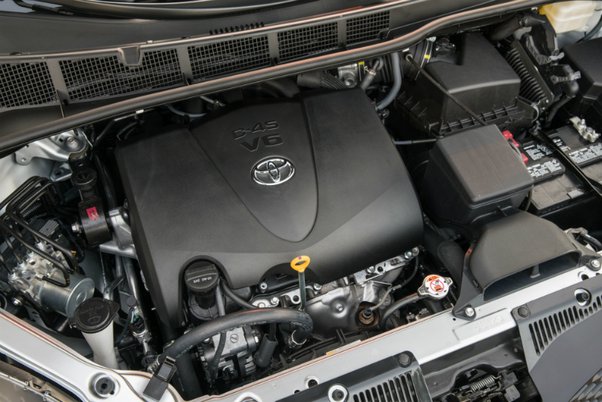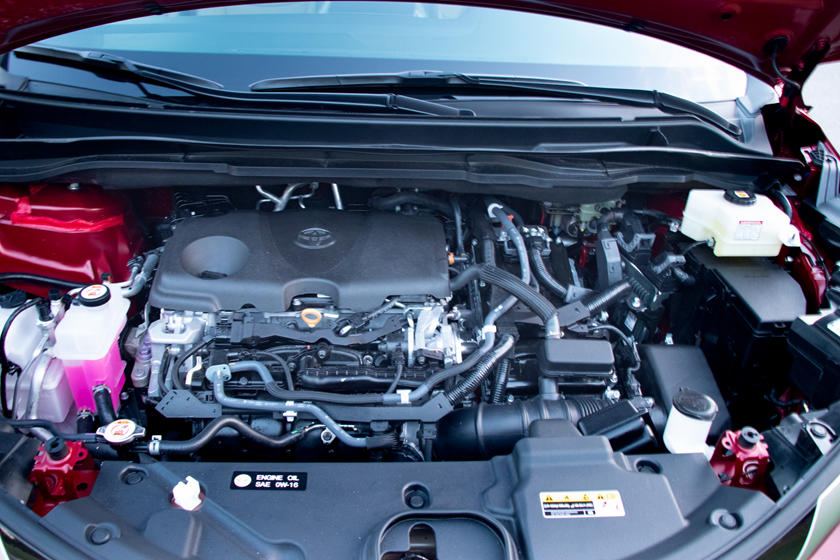how long do toyota siennas last
How Long Do Toyota Siennas Last – Lets Talk About It!
I’ve had my Toyota Sienna for more than ten years, and it’s almost at 280,000 miles. With regular maintenance, it’s been very reliable and only needed a few minor repairs. The Sienna has lasted much longer than I expected.
Toyota Siennas typically last between 200,000 and 300,000 miles with regular maintenance. Some owners have reported their Siennas exceeding this range with proper care.
Wondering how long a Toyota Sienna lasts? Find out why this reliable minivan can often drive past 300,000 miles!
What is the Average Lifespan of a Toyota Sienna?
The average lifespan of a Toyota Sienna is typically between 200,000 and 300,000 miles. Many owners report that with proper maintenance, their Siennas can exceed this range. Regular servicing, such as oil changes, brake checks, and tire rotations, plays a crucial role in reaching or surpassing this mileage.
How Many Miles Can a Toyota Sienna Typically Last with Regular Maintenance?
With regular maintenance, a Toyota Sienna can often last between 200,000 and 300,000 miles. Many owners find that their Siennas reach this mileage with consistent care, which includes routine oil changes, tire rotations, brake inspections, and other scheduled services.

Following the manufacturer’s maintenance schedule and promptly addressing any issues can help extend the vehicle’s lifespan even further, potentially allowing some Siennas to surpass the 300,000-mile mark.
What Factors Influence How Long a Toyota Sienna Will Last?
Regular Maintenance:
Adhering to the manufacturer’s maintenance schedule, including oil changes, tire rotations, and brake inspections, helps keep the vehicle in optimal condition and can significantly extend its lifespan.
Driving Habits:
Gentle driving, avoiding aggressive acceleration and hard braking, can reduce wear and tear. Frequent short trips or stop-and-go driving can lead to more rapid engine and transmission wear.
Climate and Conditions:
Extreme temperatures and harsh weather conditions, such as heavy rain, snow, or salt on roads, can affect the vehicle’s longevity. Regular cleaning and protective measures can help mitigate these effects.
Quality of Parts and Repairs:
Using high-quality parts for repairs and replacements ensures that components function correctly and last longer, which contributes to the overall durability of the vehicle.
Vehicle Load and Usage:
Overloading the vehicle or using it for towing beyond its capacity can strain the engine and suspension, leading to potential issues and reducing its lifespan.
Driving Environment:
Frequent driving on rough or unpaved roads can accelerate wear on suspension components and the overall vehicle.
Are There Common Issues That Affect the Longevity of a Toyota Sienna?
Transmission Problems:
Some Sienna models, particularly older ones, may experience transmission issues, such as slipping or rough shifting. Regularly checking and maintaining transmission fluid can help prevent these problems.
Suspension Wear:
The suspension system, including components like shocks and struts, can wear out over time, especially if the vehicle frequently carries heavy loads or drives on rough roads. Regular inspections and timely replacements are important.
Engine Oil Sludge:
In some cases, oil sludge buildup can occur if the oil isn’t changed regularly.”Regular cleaning and protective steps can reduce these effects.This can cause engine performance problems and possible damage. Following the recommended oil change intervals can help prevent this.

Brake Wear:
As with any vehicle, brake pads and rotors can wear out and require replacement. Regular brake inspections and maintenance ensure safe operation and prevent further damage.
Electrical Issues:
Electrical problems, such as issues with the battery or alternator, can arise. Regular checks and prompt repairs can prevent these issues from affecting the vehicle’s reliability.
Rust and Corrosion:
In areas with heavy road salt or humid conditions, rust and corrosion can affect the body and undercarriage. Regular washing and rust prevention measures can mitigate this issue.
How Does Regular Maintenance Impact the Lifespan of a Toyota Sienna?
Regular maintenance plays a crucial role in extending the lifespan of a Toyota Sienna. Adhering to the manufacturer’s recommended maintenance schedule, including routine oil changes, tire rotations, and brake inspections, helps keep the vehicle’s critical systems running smoothly.
Regularly changing the engine oil ensures proper lubrication, reducing wear and tear on engine components. Tire rotations and alignments help ensure even wear, contributing to better handling and performance. Moreover, timely brake checks and replacements prevent further damage to the braking system and ensure safety.
What Are Some Tips for Extending the Life of a Toyota Sienna?
Follow the Maintenance Schedule:
Adhere to the manufacturer’s recommended maintenance schedule, including regular oil changes, tire rotations, and brake inspections. This helps ensure that all critical components are kept in optimal condition and can prevent premature wear and tear.
Drive Smoothly:
Practice gentle driving habits by avoiding rapid acceleration, hard braking, and aggressive cornering. Smooth driving reduces stress on the engine, transmission, and suspension, which can contribute to a longer vehicle lifespan.
Regularly Check Fluid Levels:
Regularly inspect and top off essential fluids, including engine oil, transmission fluid, coolant, and brake fluid. Proper fluid levels and quality are crucial for the smooth operation of various systems in the vehicle.
Keep the Vehicle Clean:
Regularly wash the exterior and undercarriage of your Sienna to remove dirt, salt, and debris that can cause rust and corrosion. This is particularly important in regions with heavy road salt or extreme weather conditions.
Monitor Tire Health:
Maintain proper tire pressure and regularly inspect their condition. Rotate your tires as recommended to ensure even wear and maintain alignment. Properly maintained tires contribute to better handling and fuel efficiency.
Address Issues Promptly:
Pay close attention to any warning lights or unusual sounds and address them promptly. Early detection and repair of minor issues can prevent these small problems from escalating into major repairs, ensuring your vehicle remains in top condition.
Maintain the Cooling System:
Ensure that the cooling system, including the radiator and hoses, is in good condition. Regularly check for leaks and replace the coolant as recommended to prevent overheating and engine damage.
Use Quality Parts:
When replacing parts or fluids, use high-quality or OEM (original equipment manufacturer) parts to ensure compatibility and durability, which helps maintain the vehicle’s performance and longevity.
Do Driving Habits Affect How Long a Toyota Sienna Lasts?
Yes, driving habits significantly impact the longevity of a Toyota Sienna. Gentle driving practices, such as smooth acceleration and gradual braking, reduce stress on the engine, transmission, and suspension components.

Frequent aggressive driving or rapid acceleration can lead to increased wear and tear, potentially shortening the vehicle’s lifespan. Additionally, avoiding heavy loads and overloading the vehicle helps prevent excessive strain on the engine and suspension systems, contributing to a longer-lasting vehicle.
What Maintenance Tasks Are Crucial for Maximizing the Longevity of a Toyota Sienna?
Regular Oil Changes:
Consistently changing the engine oil and oil filter according to the manufacturer’s recommendations is essential. Fresh oil ensures proper lubrication of engine components, which helps prevent overheating, excessive wear, and potential engine damage.
Scheduled Tire Maintenance:
Regularly checking and maintaining proper tire pressure, rotating the tires every 5,000 to 7,500 miles, and aligning the wheels as needed help ensure even tire wear and optimal handling. Well-maintained tires contribute to overall vehicle stability and performance.
Brake System Inspections:
Routine inspections and timely replacement of brake pads, rotors, and fluid are crucial for maintaining braking efficiency and safety. Regular brake maintenance prevents excessive wear and potential damage to the braking system.
Cooling System Maintenance:
Regularly checking and replacing the coolant, and inspecting the radiator and hoses for leaks, helps prevent engine overheating and potential damage. A well-maintained cooling system ensures the engine operates at the correct temperature.
Fluid Checks and Replacements:
Regularly checking and topping off essential fluids, including transmission fluid, power steering fluid, and windshield washer fluid, is important for smooth operation of various vehicle systems. Following the manufacturer’s recommendations for fluid changes is also essential.
Air Filter Replacements:
Replacing the engine air filter and cabin air filter at the recommended intervals ensures optimal engine performance and air quality inside the vehicle. A clean air filter improves fuel efficiency and engine health.
Battery Maintenance:
Regularly inspecting the battery and cleaning corrosion from terminals helps ensure reliable starting and electrical system performance. Replacing the battery when it shows signs of weakening can prevent unexpected breakdowns.
FAQS:
How often should I perform maintenance on my Toyota Sienna?
Follow the maintenance schedule outlined in your vehicle’s owner’s manual, which typically includes oil changes every 5,000 to 7,500 miles and other routine checks at specific intervals.
What should I do if my Toyota Sienna shows warning lights?
If warning lights appear on your dashboard, address them promptly by consulting your owner’s manual or visiting a qualified mechanic to diagnose and resolve the issue.
How does driving on rough roads affect my Toyota Sienna?
Frequent driving on rough or unpaved roads can lead to faster wear on the suspension system and other components. Regular inspections and maintenance can help mitigate these effects and ensure the vehicle remains in good condition.
Conclusion:
Toyota Siennas usually last between 200,000 and 300,000 miles with regular maintenance. Many owners report exceeding this range with proper care, making the Sienna a reliable choice for long-term dependability.

I’m Harry Edward, your Toyota car expert. With 5 years of experience in Toyota car repair, I share practical tips and insights to help you keep your vehicle in top condition.
From routine maintenance to fixing common issues, my goal is to make your Toyota ownership experience smooth and enjoyable.







